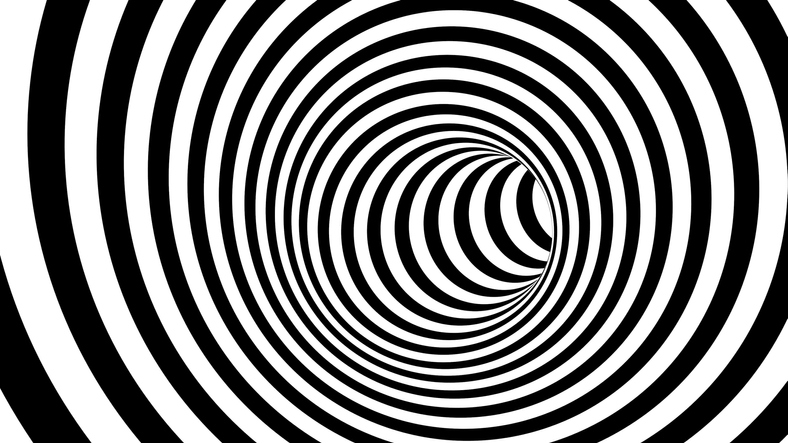The causes of dizziness can range from an uncomfortable inconvenience to a life-threatening condition.
Are you feeling dizzy? You should not ignore it. Dizziness may be associated with adverse outcomes such as inactivity, falls, and injury. Finding the cause of your dizziness and treating it can improve your quality of life. More importantly, the causes of dizziness can range from an uncomfortable inconvenience to a life-threatening condition. We've listed five common causes of dizziness, so you can take appropriate action.
1. Vertigo
The false sensation of movement, particularly spinning, when you are still is called vertigo. Vertigo is very prevalent among older adults. It affects 30 percent of adults over aged 60 and 50 percent of people over 85 years old. 
Benign paroxysmal positional vertigo (BPPV) causes most dizziness in older adults. Dizziness brought on by changing the position of your head usually indicates BPPV. Particle repositioning is a highly effective treatment for BPPV that a physician can perform in the office. Surgical treatment is available when particle repositioning does not alleviate symptoms.
2. Infection
Various infections can cause inflammation in your inner ear. That inflammation often causes dizziness because your brain receives spatial and balance information from your inner ear. Based on the type of infection, your physician may prescribe an antibiotic or an antiviral medication. Also, your doctor may prescribe a corticosteroid to reduce the inflammation. Antihistamines and medications that treat nausea and dizziness like meclizine may alleviate symptoms.
3. Medication
 Dizziness is a potential side effect of certain drugs. You may want to speak to your doctor if you take:
Dizziness is a potential side effect of certain drugs. You may want to speak to your doctor if you take:
- Antidepressants
- Medication to control your blood pressure
- Anti-seizure drugs
- Sedatives
If you suspect your medication is the cause of your dizziness, your physician may change your medication or lower your dose. Discontinuing the medication without your doctor's counsel is not advised.
4. Meniere's Syndrome
Someone with Meniere's syndrome experiences attacks or episodes that may include:

- Dizziness
- Nausea
- Vomiting
- Ear fullness
- Ringing in the ear (tinnitus)
- Hearing loss
- Distorted hearing
An attack may be as short as a few minutes or endure for up to 24 hours. Meniere's syndrome is thought to be caused by an imbalance of fluid in the inner ear. The condition usually affects one ear but cases involving both ears are not unheard of.
Meniere's syndrome cannot be cured but it can be treated. Your doctor may recommend lifestyle changes such as quitting smoking, decreasing your intake of caffeine and alcohol, and eating a low-sodium diet. Your physician may also prescribe a diuretic to reduce fluid retention. To relieve symptoms, motion sickness medications can address dizziness. You may be prescribed anti-nausea drugs for vomiting.
Your doctor may opt to inject an antibiotic like gentamicin or a steroid directly into your ear. Finally, surgery may be recommended for severe Meniere's syndrome cases that do not respond to other treatments.
5. Stroke or TIA
During a stroke, your brain does not receive proper blood flow due to a blocked or ruptured blood vessel. A transient ischemic attack (TIA) is a pre-stroke condition. A stroke and a TIA are both serious and require immediate emergency medical care. If you're dizzy and you suddenly have any of the following symptoms, call 911.
Stroke Symptoms
- Face drooping on one side
- Sudden numbness or weakness of the arm, leg, or face
- New confusion, difficulty speaking or understanding speech
- Sudden slurred speech
- New severe headache or neck pain
- Sudden drooping eyelid on one side
- Sudden difficulty seeing from one or both eyes
- New unequal pupils
- New trouble with balance or coordination
- Sudden inability to stand when holding something firm
- Sudden severe vomiting
Stroke treatment varies based on the nature of the stroke. The majority of strokes are due to the blockage of a clot. The standard treatment is to inject tissue plasminogen activator, an anti-clotting agent.
The goal of TIA treatment is to prevent a stroke. Possible treatments include medications such as antiplatelets or anticoagulants. Your physician may also recommend dietary changes, smoking cessation, and regular exercise.
Seek Medical Care
While dizziness may be common among older adults, it is not a normal part of the aging process. Your physician needs to evaluate your dizziness to determine its cause and treatment. Again, we cannot overemphasize dizziness accompanied by any stroke symptom is an emergency.
Questions or comments? Please feel free to contact us.

